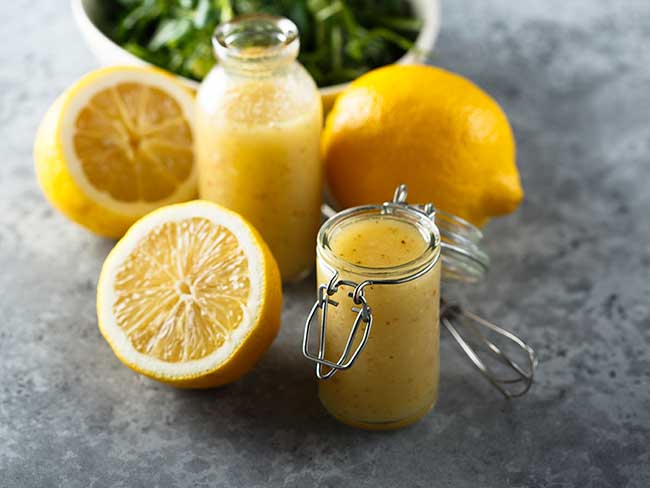Lemon vinaigrette
Enhance the flavor of your vegetables with a simple dressing.
One easy way to enhance your vegetables, salads, beans, and grain dishes is to keep a tasty homemade vinaigrette or sauce in the refrigerator.
This lemon vinaigrette tastes great on seasonal asparagus or tabbouleh salad, among other dishes.
Servings: 10
Ingredients
- 1 tablespoon minced shallots or red onion
- 3 tablespoons freshly squeezed lemon juice
- 1 small garlic clove
- 1 teaspoon Dijon mustard
- 6 tablespoons extra-virgin olive oil
- Kosher salt
- Freshly ground black pepper
Directions
- In a mason jar or bowl, combine the minced shallots or red onion and lemon juice. Let sit for a few minutes.
- In the meantime, peel the garlic and mash it into a paste on your cutting board. Add to the bowl.
- Add the mustard, olive oil, a pinch of salt and a few grinds of black pepper.
- Shake or whisk the vinaigrette together to emulsify, then taste it on whatever you are eating and adjust the salt and acidity as needed. Remember, as with any vinaigrette, a little goes a long way. The vinaigrette can be refrigerated and used for up to 2 to 3 days.
Nutrition information (per serving)
- Serving size: 1 tablespoon
- Calories: 74
- Total fat: 8 g
- Saturated fat: 1 g
- Sodium: 122 mg
- Total carbohydrate: 0.6 g
- Dietary fiber: 0 g
- Total sugars: 0 g
